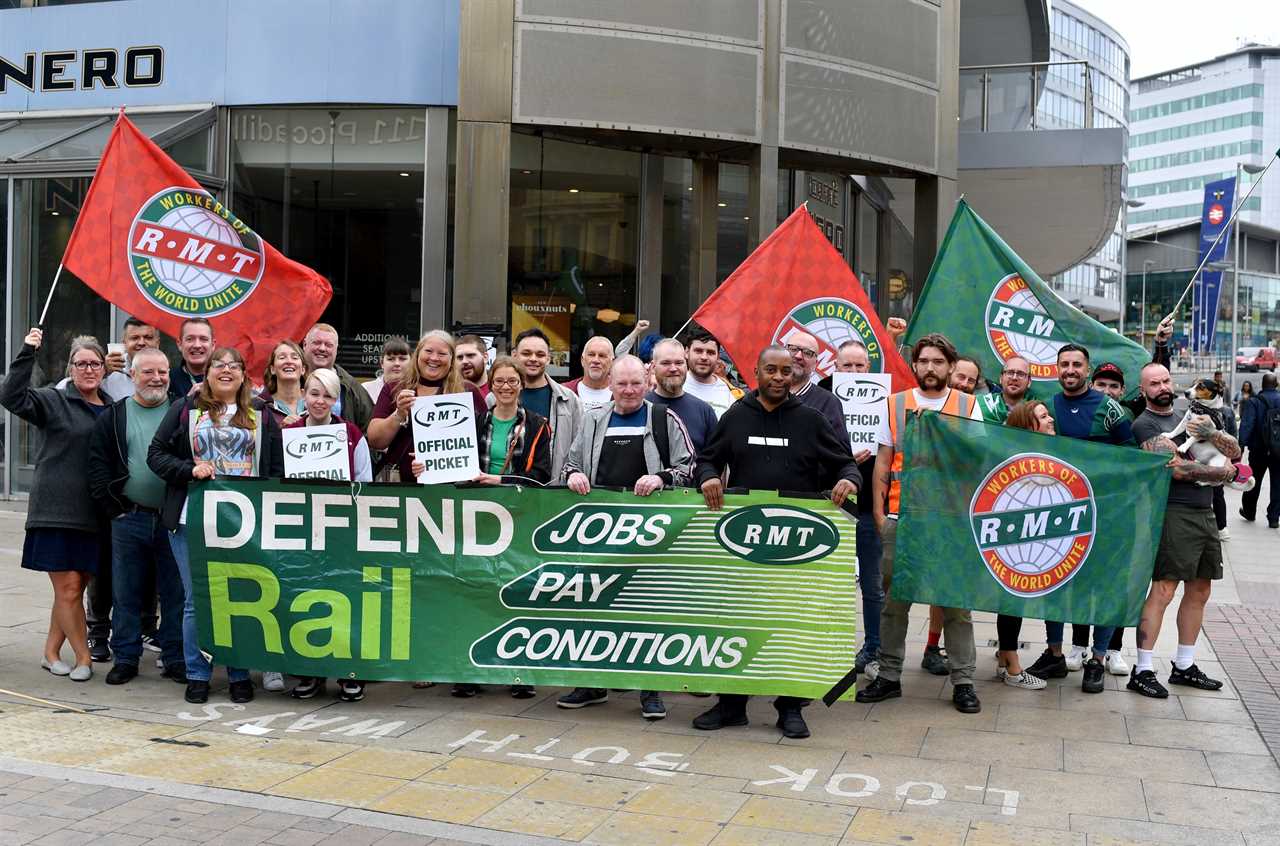GRANT Shapps warned rail union barons today that he will force a crackdown on the ability to strike if workers don’t vote on a new government pay offer.
London was brought to a standstill today as RMT Union members refused to operate the Tube, forcing it to shutdown.

RMT General Secretary Mick Lynch has warned strikes could continue indefinitely if Grant Shapps doesn’t come to the negotiating table

The nation was brought to a standstill yesterday as union members took to picketing stations
Yesterday, national rail services were also ground to a halt as workers picketed stations in protest over pay.
The government has offered workers an eight per cent pay rise over two years.
But RMT General Secretary Mick Lynch snubbed the proposal without formally putting it to members for a vote.
This morning Mr Shapps said that if a vote on the offer doesn’t go ahead, he’ll be forced to slap the RMT with Section 188 of the Trade Union Act.
The section allows bosses to break rules on when staff can be fired if “special circumstances render it not reasonably practicable for the employer to comply”.
Mr Shapps told Sky News: “If we can’t get this settled in the way that we’re proposing – which is please put the deal to your membership – then we will have to move to a section 188.
“We will have to impose modernisations, but we’d much rather do it through these offers being put to their members.”
The Transport Secretary said a law that would force unions to run a minimum number of services is “written and ready to go”. It could be in place by autumn.
He’s also prepared to reform legislation so trains can run without any guards.
Mr Lynch continued his calls for the Transport Secretary to negotiate with him directly, rather than though rail operator Network Rail.
He warned strikes could go on “indefinitely” if Mr Shapps refuses.
The Union Chief said: “Using taxpayers’ money to satisfy the anti-union agenda of the Tory party and seek to break the trade unions is shameful, and means the dispute will be prolonged indefinitely as the train companies don’t lose a penny as a result of the industrial action and therefore have no incentive to settle the disputes.
“Instead of waging an ideological war against rail workers, millions of voters would rather that the government allow for a fair negotiated settlement.”






